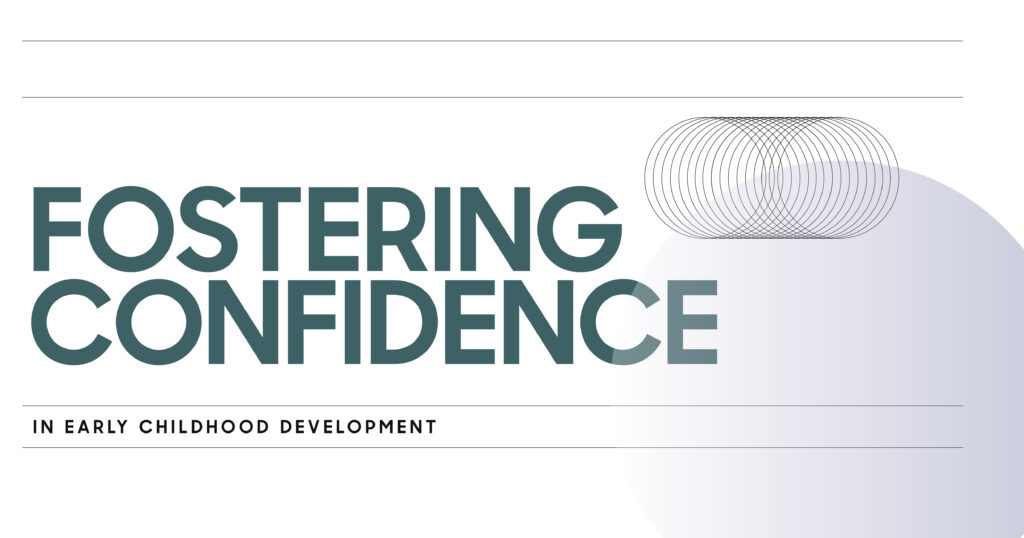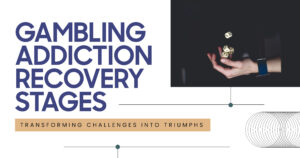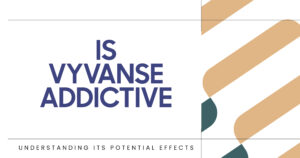In early childhood development, one of the most critical stages a child goes through is Erik Erikson’s psychosocial stage of initiative vs guilt. This stage, which typically occurs between the ages of 3 and 6, plays a pivotal role in shaping children’s personalities and self-confidence. Children learn to assert their independence, make decisions, and take initiative during this period. However, if their initiative is met with criticism or overly controlling behavior from parents, feelings of guilt can arise. This creates a delicate balance between fostering confidence and dealing with self-doubt, which significantly influences their emotional and psychological growth.
Understanding this stage and providing the proper guidance can help set children on a path toward developing healthy self-esteem and making informed decisions. In this blog, we will examine how this concept impacts early childhood development and explore what parents can do to support their children during this crucial period.
Understanding Erikson’s Stage of Initiative vs Guilt
Erik Erikson’s theory of psychosocial development outlines eight stages across the lifespan, each marked by a specific challenge. In early childhood, children face the conflict of initiative vs guilt, where they explore their ability to make decisions and initiate activities. How parents and caregivers respond to these efforts significantly impacts whether children develop a sense of initiative or guilt.
How It Shapes Personality During Early Childhood
During this stage, children develop a sense of initiative when encouraged to explore their environment and try new things. Encouraging them to make decisions, whether choosing what to wear or which game to play, helps build their confidence. However, when a child’s initiative is met with harsh criticism or punishment, they may feel guilty for their actions, fearing they will make a mistake. This guilt can hinder their ability to act independently in the future and may even affect their self-esteem.
The following are the key ways in which early childhood experiences shape a child’s personality and development:
- Encouraging initiative. Praise children for trying new things.
- Stifling initiative. Harsh criticism can cause feelings of guilt and erode confidence.
- Impact on self-esteem. Guilt can lead to self-doubt and hinder growth.
Fostering an environment where children are praised for trying new things, even if they fail, helps them develop a more positive self-image. They learn that it’s okay to make mistakes, and their autonomy is respected. This supports their emotional growth and personality development.
The Psychological Roots of Initiative in Young Minds
The roots of initiative lie in a child’s growing sense of autonomy and desire to assert control over their actions. As children explore the world around them, they understand that they can influence outcomes through their actions. However, autonomy doesn’t just happen on its own – it is supported by encouragement from parents and caregivers.
Why Confidence Begins With Autonomy
Autonomy is the foundation of confidence in early childhood development. Children feel empowered when they are allowed to make big or small decisions. This autonomy strengthens their self-esteem and encourages them to take on new challenges. For example, letting a child choose between two options for a snack or pick out their clothes can help them feel a sense of control over their environment. This confidence in their decision-making abilities is key to building initiative and reducing the risk of guilt.
Here are some key ways in which autonomy influences confidence and decision-making in early childhood development:
- Autonomy and confidence. Giving children choices boosts self-esteem.
- Small decisions matter. Simple choices, such as picking a snack or choosing clothes, can help build confidence.
- Long-term impact. Autonomy fosters a positive attitude toward decision-making.
When Guilt Overpowers Growth
On the other hand, when children’s attempts at taking initiative are stifled by overcontrolling parents or excessive criticism, feelings of guilt can emerge. This guilt can discourage children from trying new things or asserting themselves in the future.
Emotional Consequences of Suppressed Initiative
Children repeatedly reprimanded for trying new activities or making decisions may feel incompetent and ashamed. This affects their self-esteem and can lead to a fear of failure. Children who experience high levels of guilt may become hesitant to take risks and could even struggle with anxiety or depression later in life. Parents must strike a balance between guiding their children and giving them the freedom to explore their interests.
The following points outline the emotional consequences that can arise when children’s initiative is suppressed, affecting their self-esteem and overall development:
- Fear of failure. Excessive guilt leads to hesitation and a lack of initiative.
- Long-term impact. Children may develop anxiety and struggle with independence.
- Importance of balance. Parents should guide without suppressing initiative.
Supporting Autonomy to Boost Self-Esteem
Encouraging children’s autonomy is one of the most effective ways to promote self-esteem and confidence during early childhood development. When children are allowed to make choices and are praised for their efforts, they develop a stronger sense of self-worth.
Encouraging Small Decisions to Build Big Confidence
One of the most effective ways to nurture autonomy in children is to allow them to make decisions in everyday situations. Here are a few examples:
- Choosing a snack. Allowing a child to choose between two healthy snack options.
- Picking out clothes. Giving them the freedom to choose their outfit for the day.
- Deciding on activities. Allowing them to decide which game or activity they want to do.
These small choices build a foundation for larger, more complex decision-making as children grow older. It’s essential to offer them opportunities to assert their independence while providing guidance when necessary to help them learn from consequences. Here’s how small choices shape decision-making skills and set the stage for greater autonomy and responsibility in children:
- Building decision-making. Let children practice making small choices.
- Foundation for bigger choices. Early decisions prepare children for larger responsibilities.
- Balanced guidance. Provide the freedom to make choices, with appropriate support.
The Role of Parents in Early Decision-Making
Parents play a significant role in developing initiative and guilt during this stage. Their reactions to their children’s decision-making attempts can foster a sense of independence or instill a fear of making mistakes.
How Caregiver Reactions Shape Initiative or Guilt
When parents praise their children’s efforts and encourage them to try again after a failure, they help develop a healthy sense of initiative. On the other hand, if parents are critical or dismissive of their child’s efforts, the child may feel that their decisions are wrong or unimportant. This can lead to feelings of guilt, self-doubt, and a reluctance to take on new challenges in the future. Here’s how caregiver reactions can either foster initiative or lead to guilt in a child’s development:
- Positive reinforcement. Praise children for their efforts, even after failure.
- Avoid criticism. Harsh reactions can lead to guilt and hinder initiative.
- Encourage exploration. Support your child’s independence and decision-making.
Parents should strive to provide positive reinforcement for trying new activities, even when things don’t go as planned. Offering constructive feedback and encouragement instead of criticism can help children navigate this critical stage healthily.
Balancing Freedom and Guidance in Early Years
While giving children the freedom to make decisions is essential, it’s equally important to establish clear boundaries. The balance between freedom and guidance is crucial for healthy emotional development.
Setting Boundaries Without Discouraging Effort
Parents should establish clear behavior expectations while allowing their children to explore and make decisions. While encouraging independence is essential, safety should always be a priority. Allowing children to make decisions within safe and reasonable limits teaches them how to make informed choices while also helping them understand the consequences of their actions. Here’s how boundaries promote independence while ensuring safety and responsibility:
- Set boundaries. Ensure safety while offering autonomy.
- Balance freedom and limits. Encourage independence within defined limits.
- Teach responsibility. Guide children on the consequences of their decisions.
A good balance of freedom and guidance helps children feel confident while learning responsibility.
Recognizing Initiative Through Everyday Behavior
Initiative can be recognized in many everyday behaviors. Children who lead in planning activities, making decisions, and expressing their ideas demonstrate initiative. These behaviors are key indicators that children are developing confidence and autonomy.
It’s important to recognize these efforts, even in small ways, and offer praise and encouragement. This helps reinforce the behavior and encourages children to continue asserting themselves. Here are a few ways to encourage initiative and leadership in children through praise and recognition:
- Leadership in play. Children who lead activities show initiative.
- Expressing ideas. When children voice their thoughts, they are asserting autonomy.
- Positive reinforcement. Recognize and praise efforts to encourage further initiative.
Learn to Build Healthy Confidence at Treat Mental Health Washington
At Treat Mental Health Washington, our team understands the significance of initiative vs. guilt in early childhood development. If your child confidently makes decisions, expresses themselves, and takes on new challenges, it’s a good sign that they are building a healthy sense of initiative. However, reaching out for guidance and support may be helpful if you see signs of excessive guilt, such as reluctance to try new things or fear of making mistakes.
Our team of licensed professionals can help you understand your child’s emotional development and provide strategies to foster confidence and autonomy.
Contact Treat Mental Health Washington today for personalized support.
FAQs
What is the significance of Erik Erikson’s psychosocial stage of initiative vs guilt in early childhood development?
Erikson’s stage of initiative vs guilt is significant because it shapes a child’s ability to take initiative, make decisions, and assert independence. Parents’ responses to their child’s actions during this stage greatly influence their emotional development and self-esteem.
How does autonomy influence self-esteem during the initiative vs guilt stage in early childhood?
Autonomy boosts self-esteem by allowing children to make decisions, take risks, and learn from mistakes. This helps them develop confidence in their abilities and fosters a positive self-image.
In what ways can parental influence affect a child’s decision-making abilities and initiative during the early childhood years?
Parental influence can either encourage or discourage a child’s initiative. Positive reinforcement and supportive reactions to their decisions help children develop confidence, whereas criticism or control can lead to feelings of guilt and self-doubt.
How can parents help balance initiative and guilt to promote healthy psychosocial growth in young children?
Parents can balance initiative and guilt by encouraging independence while providing guidance and setting clear yet flexible boundaries. Praise for effort and constructive feedback after failures foster healthy emotional growth.
What are the long-term effects of successfully navigating the initiative vs guilt stage on a child’s personal development?
Successfully navigating this stage increases self-esteem, enhances decision-making abilities, and increases resilience. Children who develop a healthy sense of initiative are more likely to become confident, independent adults.









